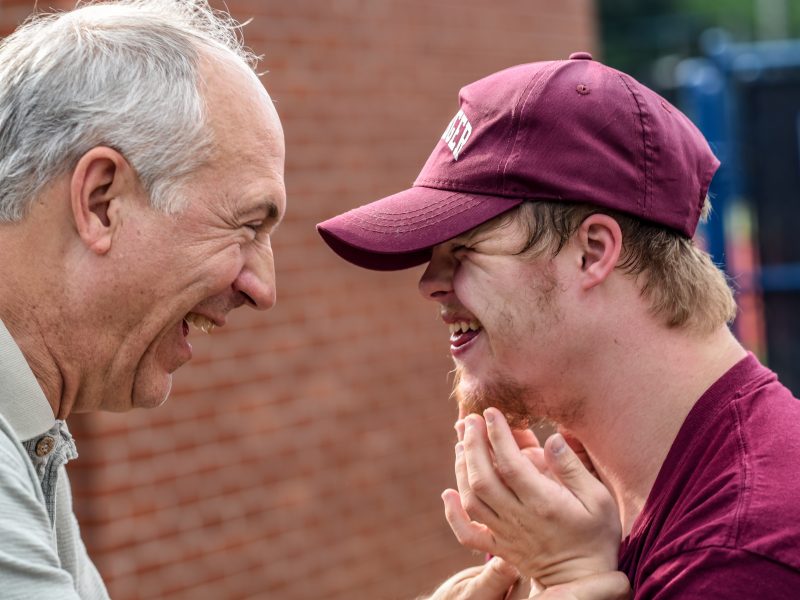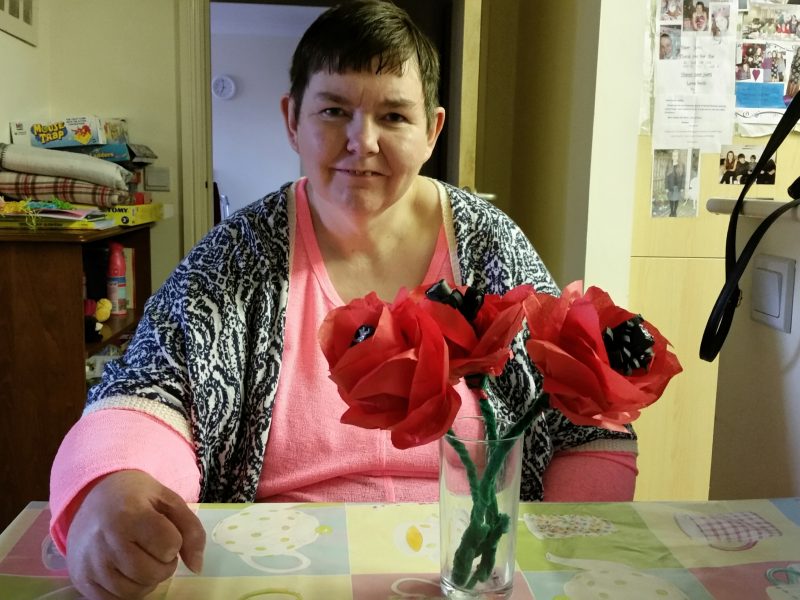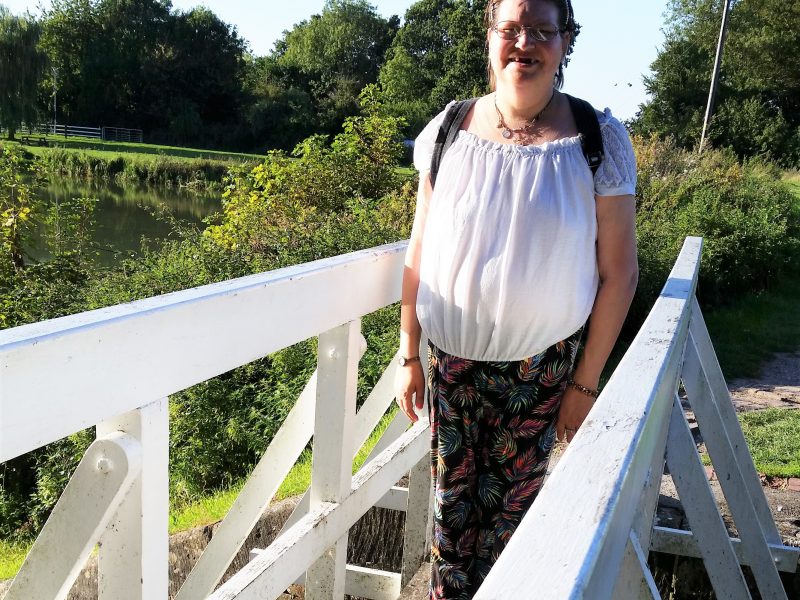Pamela Pamela has a very busy family life, so Pamela uses her home care support to do things for herself. Her enabler supports Pam to... Read more »
Susan, Dev and Danielle Susan, Dev and Danielle each have high functioning autism and they live independently in their own flats with minimal home care... Read more »
Greg Greg was born with cerebral palsy that mainly affects his legs. Greg’s family were looking after him but he wanted greater independence although he... Read more »

Blue Sky Enabling offer Supported Living services providing 24/7 support to the service living in their own home. Each service is person-centred and person-specific and builds on our service users’ capacities to achieve their goals.
Read More
Blue Sky Enabling offer 24/7 Live-in services to those services users who struggle with staff changes and lots of people in their team. With small consistent teams, we are able to build on our service users’ positive experiences and successful outcomes.
Read More
At Blue Sky Enabling we believe that it is important to support people whatever their capacity to continue to live an active and engaged life of their own choosing in surroundings that are familiar to them.
Read MoreAt Blue Sky Enabling we work to enable people of all ages with a range of complex needs to live a life of their own choosing, in their own home, for the whole of their life, as included members of their community. We are also able to support parents with disabilities to enable them to care for their children.
We are a fully accredited preferred provider of high-quality, flexible person-centred services to adults of all ages living with Learning Disabilities, Autistic Spectrum Disorders, Mental Health, Sensory Impairments, Physical disabilities, Challenging Behaviour.
What distinguishes Blue Sky Enabling is that we focus on each person’s capacity and sense of personal identity so that we can work with them to nurture those aspects of life that have most meaning to them. Working with a person on what matters most to them enables them to fully engage with life and brings moments of real happiness and joy.
The aim of good quality enabling support must always be to promote a way of life for a person that permits them to enjoy, to the greatest possible extent, their rights as individual human beings. To this end, we operate with open communication, involving service users, families, staff and professionals in best interest/open discussion processes and collaborative decision making on all aspects of each individual’s service planning, giving each service user a strong sense of inclusion and control over their life.
It is estimated that there are 1.2million people with learning disabilities in England alone. Most learning disabilities are there from birth, but some can result from brain injury or infections like meningitis. All forms of learning disabilities affect the way people learn, affecting intellectual skills and/or functional skills with more severe disabilities having a more profound impact on the person’s development and capacity.
At Blue Sky Enabling we spend time getting to know each service user, building trust and involving them, their family, staff and professionals in structuring their individual support plan that builds their capacity to enable them to meet their goals. Each service user’s dedicated staff team work alongside them according to their needs. This may include enabling them to maintain their health and mental wellbeing, manage their medications, maintain their tenancy, budget, shop, cook, access the wider community and enjoy life.
Autistic Spectrum Disorder (ASD) is a genetic condition that affects about 1 in 100 people. ASD is characterised by the triad of difficulties: social and emotional interaction, imagination and flexibility of thought, social communication and language. The extent to which individuals with ASD are affected varies considerably from individuals with above average to high intelligence with very mild difficulties to those who experience a profound degree if disability, which is also associated with a broader range of learning disabilities. Given the infinite range of needs that comes from working with people on a spectrum, how BSE works with each service user with ASD is unique to them.
BSE understands that how people with ASD process information and understand the world around them is different to neurotypical people. Whilst this difference creates capacity in some to develop creative innovative solutions to problems, for others, everyday issues, such as their favourite product being out of stock in the supermarket, can appear to them to be an insurmountable problem. Without the right support, this can lead to heightened anxiety and behavioural responses that others find challenging.
At BSE our staff are trained to understand how people on the ASD experience the world. BSE works closely in partnership with the service user, their staff, family and professionals so that their individual support plan and positive behaviour support plan provides a step by step development programme to develop their coping strategies. In our experience, people with ASD have immense capacity to learn new strategies to support them in overcoming their triad of difficulties.
Many people will experience a decline in their mental wellbeing at some time in their life. That we are all vulnerable to issues with our mental health became very apparent during the covid-19 outbreak of 2020 that saw the UK experience government-imposed nationwide lockdowns, the closing of schools and periods of self-isolation as part of our strategy to combat the spread of the deadly virus. BSE are very aware of the impact of singular traumatic events (accidents, serious injury, victim of a crime etc) leading to post-traumatic stress disorder and the complex trauma arising from historical sustained difficulties in key relationships, bullying, exclusion, abuse etc
For most people the anxieties, depression, post-traumatic stress disorder and other forms of mental illness that can manifest at times of extreme stress are temporary and can be resolved with the right combination of short-term psychological interventions, support groups and medication treatment. However, for some people their complex trauma and mental illness may have a more enduring impact on their life, requiring more consistent interventions.
BSE works closely with each service users’ medical support team (psychiatrist, psychologist, GP, community nurses etc) to structure a progressive support plan to improve their mental wellbeing. This may include a self-administered or staff administered medication plan and an agreed programme of activities and community engagement designed to build capacity and resilience and address underlying issues.
People have five basic senses: sight, hearing, touch, taste and smell but these can be impaired from birth or during our lives as a result of injury, illness or as we age.
Impairments in sight or hearing can have a profound impact on how the person communicates and engages with others and how they navigate their environment. Difficulties are further compounded where there is a combination of sensory impairments for example sight and hearing loss or sight and touch loss.
At BSE we understand that, when not addressed, difficulties in communication can lead to behaviours that others find challenging. To minimise the risk of behaviours that challenge, we work alongside service users, using their preferred means of communication.
We also understand the importance of maintaining the home environment as a familiar space so that our service users can navigate their home independently and safely. Staff provide the appropriate level of support for each person when out of the home so that our service users are able to actively engage in the community.
Whatever the person’s impairment, BSE focuses upon their abilities, and using that as a starting point works alongside the service user to build their capacities and independent living skills.
People can have physical disabilities from birth, or as a result of injury, illness or through the aging process.
At BSE we see the whole person and work alongside them according to their abilities so that they are able to live a full and meaningful life of their own choosing. Supporting people safely is of paramount importance and so as well as working with the service user, we enlist the support of occupational therapists, speech and language therapists etc to advise and guide on adaptions, equipment and tools that will aid the person.
A ‘full and meaningful life’ is not just about managing the practical day to day functions of everyday life (managing personal care, nutrition, maintaining the home environment etc) it is also about having access to community equally to everyone else. So, we support our service users to go shopping, engaging in sport, go to events, participate in work opportunities etc.
When we were young and growing up, we all exhibited behaviours that others found challenging. We might have shouted, hit out, thrown things on the floor, slammed doors, refused to get dressed for school etc as we learned how to get what we wanted and the boundaries of behaviours that were expected of us. Most of us will have learned different and more effective ways to achieve positive outcomes, express our frustration and to cope with disappointments. But for some people with disabilities or who have experienced trauma, challenging behaviours may have been the only way they can cope with past trauma or they can get their needs met, and the behaviours may have persisted for a very long time.
At Blue Sky Enabling all of our staff are trained in Positive Behaviour Management Professional (including Trauma Informed Care & Support) so that they understand why people behaviour in ways that others find challenging and they learn how to work alongside our service users to enable them to express their feelings and to get their needs met in healthy ways.
Many of our service users will arrive at a point of crisis. Our Registered Manager and Care Managers will work with them, their families and teams of professionals (variously their social worker, behaviour support nurse, psychiatrist, psychologist, speech & language therapist, community nurse etc) to develop their unique Positive Behaviour Support Plan (PBSP) that focuses on a multi-faceted approach to improving their quality of life. Each PBSP guides the staff to enable the service user to get their needs met and to understand and express their feelings without having to act in ways others find challenging.
Although Blue Sky Enabling is able to train staff in restrictive physical practises (removals and restraints), we have in fact been able to work very successfully with service users with very challenging behaviours where others have failed, without having to use any restrictive physical practises; in every case we have seen a substantial improvement in the quality of life of our service users, resulting in a significant reduction in behaviours that challenge.